Fleurs du Mal Magazine


Or see the index
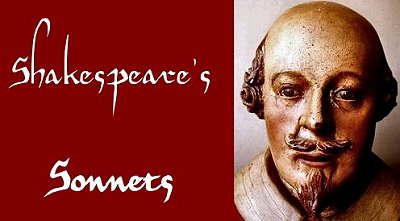
William Shakespeare
(1564-1616)
THE SONNETS
Sonnet 154
The little Love-god lying once asleep,
Laid by his side his heart-inflaming brand,
Whilst many nymphs that vowed chaste life to keep,
Came tripping by, but in her maiden hand,
The fairest votary took up that fire,
Which many legions of true hearts had warmed,
And so the general of hot desire,
Was sleeping by a virgin hand disarmed.
This brand she quenched in a cool well by,
Which from Love’s fire took heat perpetual,
Growing a bath and healthful remedy,
For men discased, but I my mistress’ thrall,
Came there for cure and this by that I prove,
Love’s fire heats water, water cools not love.
![]()
kempis.nl poetry magazine
More in: -Shakespeare Sonnets
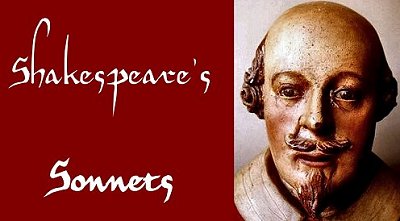
William Shakespeare
(1564-1616)
THE SONNETS
Sonnet 153
Cupid laid by his brand and fell asleep,
A maid of Dian’s this advantage found,
And his love-kindling fire did quickly steep
In a cold valley-fountain of that ground:
Which borrowed from this holy fire of Love,
A dateless lively heat still to endure,
And grew a seeting bath which yet men prove,
Against strange maladies a sovereign cure:
But at my mistress’ eye Love’s brand new-fired,
The boy for trial needs would touch my breast,
I sick withal the help of bath desired,
And thither hied a sad distempered guest.
But found no cure, the bath for my help lies,
Where Cupid got new fire; my mistress’ eyes.
![]()
kempis.nl poetry magazine
More in: -Shakespeare Sonnets
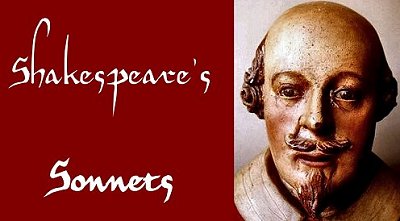
William Shakespeare
(1564-1616)
THE SONNETS
Sonnet 152
In loving thee thou know’st I am forsworn,
But thou art twice forsworn to me love swearing,
In act thy bed-vow broke and new faith torn,
In vowing new hate after new love bearing:
But why of two oaths’ breach do I accuse thee,
When I break twenty? I am perjured most,
For all my vows are oaths but to misuse thee:
And all my honest faith in thee is lost.
For I have sworn deep oaths of thy deep kindness:
Oaths of thy love, thy truth, thy constancy,
And to enlighten thee gave eyes to blindness,
Or made them swear against the thing they see.
For I have sworn thee fair: more perjured I,
To swear against the truth so foul a lie.
![]()
kempis.nl poetry magazine
More in: -Shakespeare Sonnets
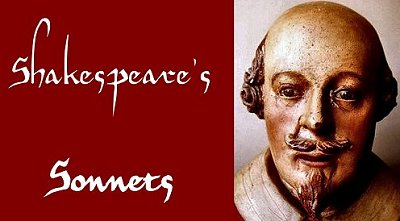
William Shakespeare
(1564-1616)
THE SONNETS
Sonnet 151
Love is too young to know what conscience is,
Yet who knows not conscience is born of love?
Then gentle cheater urge not my amiss,
Lest guilty of my faults thy sweet self prove.
For thou betraying me, I do betray
My nobler part to my gross body’s treason,
My soul doth tell my body that he may,
Triumph in love, flesh stays no farther reason,
But rising at thy name doth point out thee,
As his triumphant prize, proud of this pride,
He is contented thy poor drudge to be,
To stand in thy affairs, fall by thy side.
No want of conscience hold it that I call,
Her love, for whose dear love I rise and fall.
![]()
kempis.nl poetry magazine
More in: -Shakespeare Sonnets
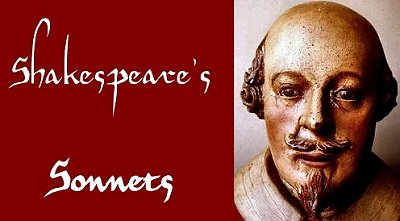
William Shakespeare
(1564-1616)
THE SONNETS
Sonnet 150
O from what power hast thou this powerful might,
With insufficiency my heart to sway,
To make me give the lie to my true sight,
And swear that brightness doth not grace the day?
Whence hast thou this becoming of things ill,
That in the very refuse of thy deeds,
There is such strength and warrantise of skill,
That in my mind thy worst all best exceeds?
Who taught thee how to make me love thee more,
The more I hear and see just cause of hate?
O though I love what others do abhor,
With others thou shouldst not abhor my state.
If thy unworthiness raised love in me,
More worthy I to be beloved of thee.
![]()
kempis.nl poetry magazine
More in: -Shakespeare Sonnets
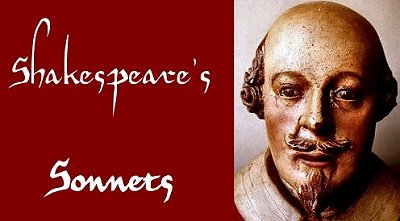
William Shakespeare
(1564-1616)
THE SONNETS
Sonnet 149
Canst thou O cruel, say I love thee not,
When I against my self with thee partake?
Do I not think on thee when I forgot
Am of my self, all-tyrant, for thy sake?
Who hateth thee that I do call my friend,
On whom frown’st thou that I do fawn upon,
Nay if thou lour’st on me do I not spend
Revenge upon my self with present moan?
What merit do I in my self respect,
That is so proud thy service to despise,
When all my best doth worship thy defect,
Commanded by the motion of thine eyes?
But love hate on for now I know thy mind,
Those that can see thou lov’st, and I am blind.
![]()
kempis.nl poetry magazine
More in: -Shakespeare Sonnets
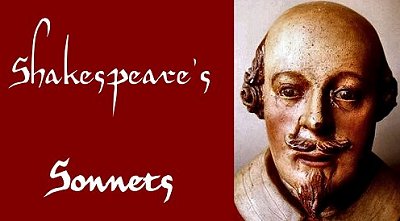
William Shakespeare
(1564-1616)
THE SONNETS
Sonnet 148
O me! what eyes hath love put in my head,
Which have no correspondence with true sight,
Or if they have, where is my judgment fled,
That censures falsely what they see aright?
If that be fair whereon my false eyes dote,
What means the world to say it is not so?
If it be not, then love doth well denote,
Love’s eye is not so true as all men’s: no,
How can it? O how can love’s eye be true,
That is so vexed with watching and with tears?
No marvel then though I mistake my view,
The sun it self sees not, till heaven clears.
O cunning love, with tears thou keep’st me blind,
Lest eyes well-seeing thy foul faults should find.
![]()
kempis.nl poetry magazine
More in: -Shakespeare Sonnets
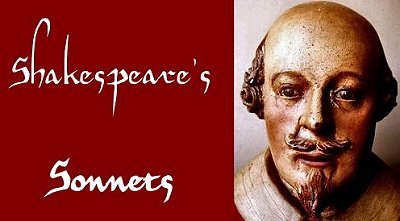
William Shakespeare
(1564-1616)
THE SONNETS
Sonnet 147
My love is as a fever longing still,
For that which longer nurseth the disease,
Feeding on that which doth preserve the ill,
Th’ uncertain sickly appetite to please:
My reason the physician to my love,
Angry that his prescriptions are not kept
Hath left me, and I desperate now approve,
Desire is death, which physic did except.
Past cure I am, now reason is past care,
And frantic-mad with evermore unrest,
My thoughts and my discourse as mad men’s are,
At random from the truth vainly expressed.
For I have sworn thee fair, and thought thee bright,
Who art as black as hell, as dark as night.
![]()
kempis.nl poetry magazine
More in: -Shakespeare Sonnets
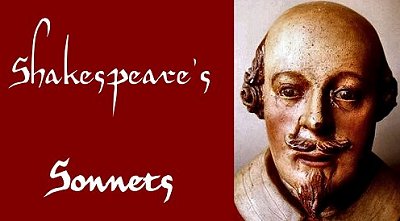
William Shakespeare
(1564-1616)
THE SONNETS
Sonnet 146
Poor soul the centre of my sinful earth,
My sinful earth these rebel powers array,
Why dost thou pine within and suffer dearth
Painting thy outward walls so costly gay?
Why so large cost having so short a lease,
Dost thou upon thy fading mansion spend?
Shall worms inheritors of this excess
Eat up thy charge? is this thy body’s end?
Then soul live thou upon thy servant’s loss,
And let that pine to aggravate thy store;
Buy terms divine in selling hours of dross;
Within be fed, without be rich no more,
So shall thou feed on death, that feeds on men,
And death once dead, there’s no more dying then.
![]()
kempis.nl poetry magazine
More in: -Shakespeare Sonnets

William Shakespeare
(1564-1616)
THE SONNETS
Sonnet 145
Those lips that Love’s own hand did make,
Breathed forth the sound that said ‘I hate’,
To me that languished for her sake:
But when she saw my woeful state,
Straight in her heart did mercy come,
Chiding that tongue that ever sweet,
Was used in giving gentle doom:
And taught it thus anew to greet:
‘I hate’ she altered with an end,
That followed it as gentle day,
Doth follow night who like a fiend
From heaven to hell is flown away.
‘I hate’, from hate away she threw,
And saved my life saying ‘not you’.
![]()
kempis.nl poetry magazine
More in: -Shakespeare Sonnets

William Shakespeare
(1564-1616)
THE SONNETS
Sonnet 144
Two loves I have of comfort and despair,
Which like two spirits do suggest me still,
The better angel is a man right fair:
The worser spirit a woman coloured ill.
To win me soon to hell my female evil,
Tempteth my better angel from my side,
And would corrupt my saint to be a devil:
Wooing his purity with her foul pride.
And whether that my angel be turned fiend,
Suspect I may, yet not directly tell,
But being both from me both to each friend,
I guess one angel in another’s hell.
Yet this shall I ne’er know but live in doubt,
Till my bad angel fire my good one out.
![]()
kempis.nl poetry magazine
More in: -Shakespeare Sonnets
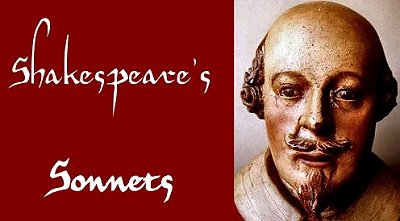
William Shakespeare
(1564-1616)
THE SONNETS
Sonnet 143
Lo as a careful huswife runs to catch,
One of her feathered creatures broke away,
Sets down her babe and makes all swift dispatch
In pursuit of the thing she would have stay:
Whilst her neglected child holds her in chase,
Cries to catch her whose busy care is bent,
To follow that which flies before her face:
Not prizing her poor infant’s discontent;
So run’st thou after that which flies from thee,
Whilst I thy babe chase thee afar behind,
But if thou catch thy hope turn back to me:
And play the mother’s part, kiss me, be kind.
So will I pray that thou mayst have thy Will,
If thou turn back and my loud crying still.
![]()
kempis.nl poetry magazine
More in: -Shakespeare Sonnets
Thank you for reading Fleurs du Mal - magazine for art & literature